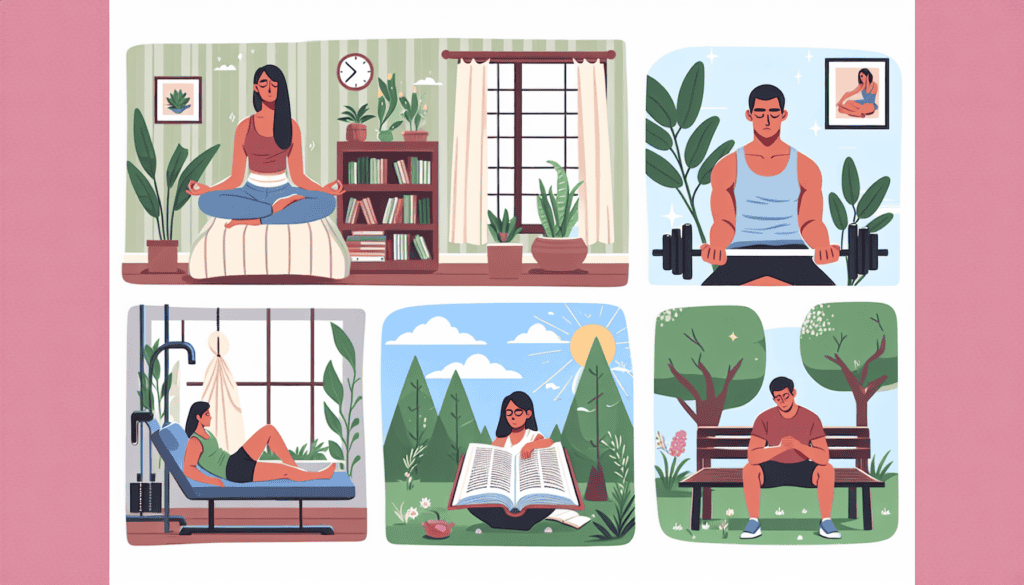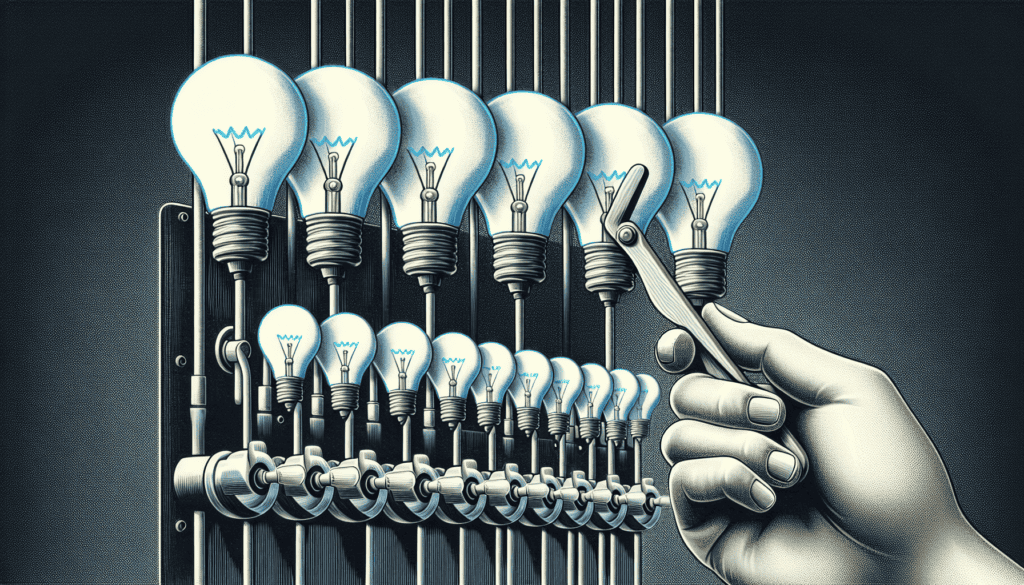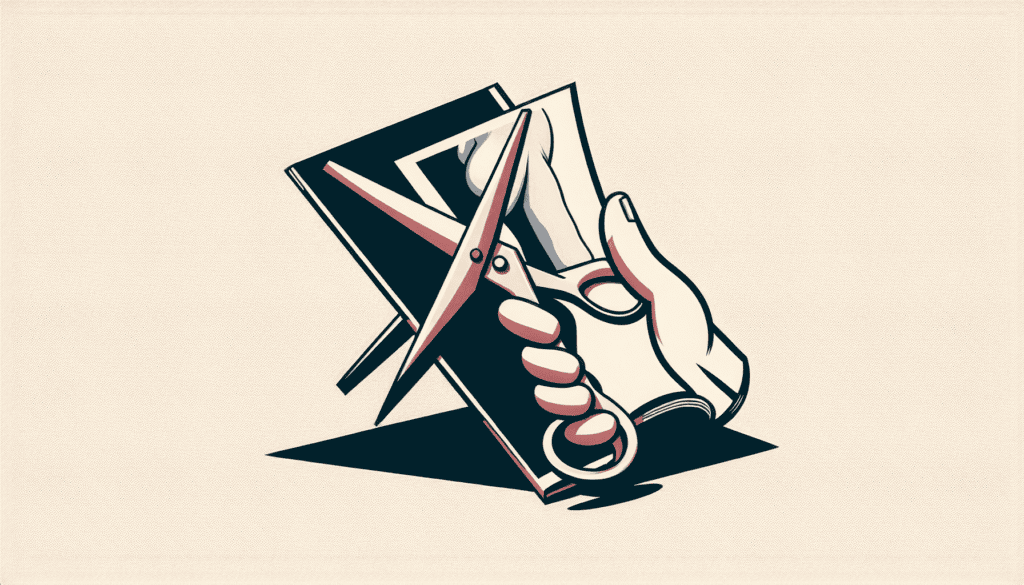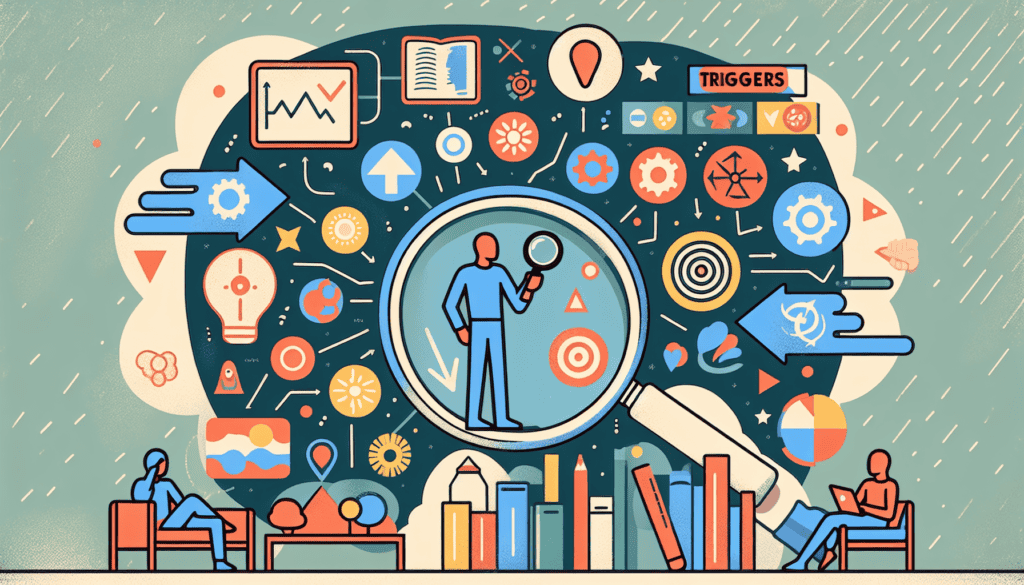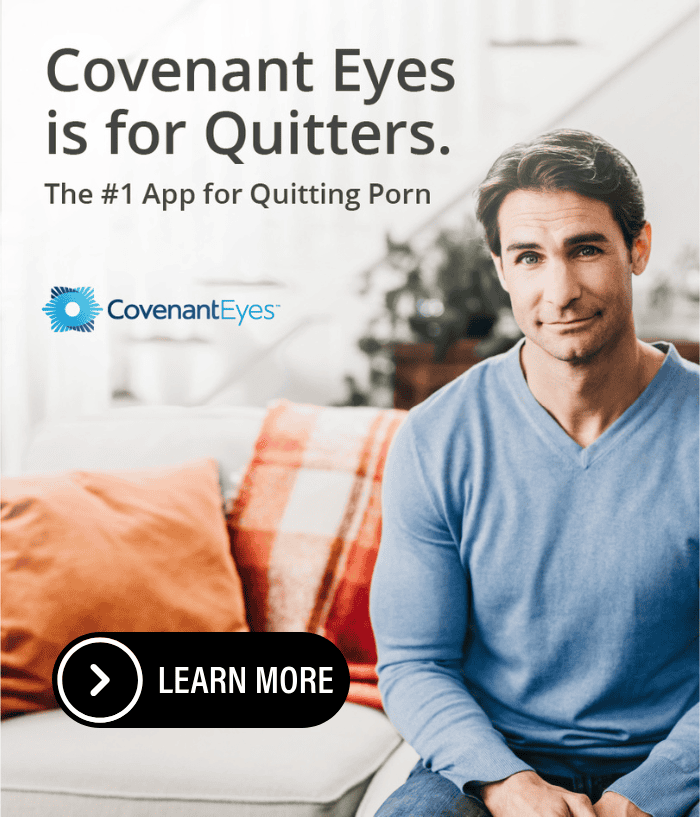Understanding Porn Addiction in Relationships
Impact of Porn Addiction
Porn addiction stirs up trouble not only for the person caught in its grip but also for those closest to them. We’re talking about partners, families, everyone who gets swept up in the struggle. It’s like inviting a silent guest that drifts couples apart, sows trust issues, and gnaws away at intimacy.
Research spills the beans: regular porn viewers might start looking at pleasure and desire through a distorted lens. They could lean toward digital indulgence over the warmth of real connection.
You could blame dopamine for this, the brain’s go-to happy juice. With repeated exposure to adult entertainment, our brains miswire, slotting pleasure with porn, spurting a need that muddles with everyday life and real relationships.
This secretive activity often drapes the individual in a heavy cloak of guilt, shame, and anxiety. The sneaky aspect can prompt folks to shut themselves off from partners, locking them in a cycle of bad vibes that’s tough to snap. Turning on the light for open, honest chats is key—it’s a lifeline, replacing loneliness with understanding and care (Addiction Center).
Signs of Porn Addiction
Figuring out if someone’s caught in the web of porn addiction is about spotting certain red flags, much like picking out symptoms of other habits that people can’t shake. Here are some tell-tale signs waving the red flag that someone may need help with a porn addiction:
| Signs of Porn Addiction | Description |
|---|---|
| Compulsive Viewing | Watching porn regularly, despite really wanting to cut down or stop altogether. |
| Interference with Daily Life | Skirting responsibilities, ducking work, or brushing aside social outings just to watch porn. |
| Escalation | Seeking out edgier or more risqué content to hit that same satisfaction button. |
| Distress or Shame | Feeling bogged down by guilt, anxiety, or depression tied to porn use. |
| Decreased Interest in Intimacy | Drifting away from sexual activities or real-life connections, preferring time with porn instead. |
When these signs pop up, it signals a need to reach out for support. It’s about stepping up to manage the relationship with porn early on, seeking out resources that can really make a difference. For those on the outside looking in, spotting these signs means understanding what’s at stake.
Supporting a loved one through this involves patience and knowing when to seek professional advice. A gentle, open-hearted chat can set the stage for healing.
And if you’re looking for more ways to talk this out or rebuild connections post-revelation, peek into our articles on how to confront husband about porn use and how to rebuild trust after porn addiction is revealed.
Seeking Support for Porn Addiction
Dealing with a porn addiction ain’t a walk in the park, for the one facing it or their partner. Getting help is a big step towards ditching the habit and fixing the relationship. We’re about to dig into the world of therapists and community support cookin’ up solutions for folks tackling porn addiction.
Therapeutic Resources
Professional help is like the GPS on this bumpy ride to recovery. Therapists, psychologists, or addiction folks with a knack for this kind of stuff are your go-to peeps. They don’t just point out what’s lurking below the surface but also show you how to handle it. Think of them as your very own tour guides helping you steer clear of those pitfalls and make sense of it all.
Here’s a breakdown of what’s what in the therapy zone:
| Type of Resource | Description |
|---|---|
| Individual Therapy | One-on-one talks about personal hurdles and ways to tackle ’em. |
| Couples Therapy | Sessions that fix up chatter and trust between partners. |
| Support Groups | Group chats where folks swap stories and learn a thing or two. |
| Online Courses | Learning paths loaded with toolkits for kicking the habit. |
Places like X3workshops have got the partners’ backs, dealing with their unique struggles and rolling out a welcome mat for support and resources.
Community Support
Having a shoulder to lean on makes a world of difference when grappling with porn addiction. These groups are like families where you can spill your guts, talk about what’s eating you up inside, and swap life hacks to beat the addiction in a safe space. Knowing there are folks who get it can lift your spirits during those tough days.
Check out these folks who’ve got your six:
| Support Group | Description |
|---|---|
| Sex Addicts Anonymous (SAA) | A 12-step gig focusing on healing from sexual addiction. |
| Porn Addicts Anonymous (PAA) | Tailored support for those wrestling with porn addiction. |
| Online Forums (e.g., r/NoFap, r/pornfree) | Reddit hubs where folks support each other with tips and tales. |
Cheering on therapy and community hugs can jumpstart healing and keep folks honest. People should also think about tech like porn blockers to help bust the habit.
With a combo of professional and community lifelines, couples have a shot at digging deep into the roots of porn addiction, boosting open talks, and patching up trust. For a deep dive into chatting with your partner about porn addiction, scope out our piece on how to communicate about porn addiction with your partner?.
Talking About Porn Addiction
Let’s face it, dealing with porn addiction in a relationship is tough. But open and honest communication can smooth out the bumps in this bumpy ride. Here are some things to keep in mind while hashing out this sensitive subject.
Keep the Conversation Flowing
Opening up about porn addiction means chatting with kindness, honesty, and zero judgment. A chill environment for these tough talks helps everyone lay their cards on the table. If you get why porn addiction’s such a struggle, you’ll be better at showing your loved one you’ve got their back.
These nifty tips can help keep the chat flowing:
| What to Do | How to Do It |
|---|---|
| Stay Chill | Keep your cool so things don’t get heated. |
| Listen Up | Let both voices be heard without butting in. |
| Use “I Feel” | Avoid the blame game by saying how you feel. |
| Skip the Blame | Focus on the addiction, not your partner’s personality. |
| Set the Rules | Agree on what can and can’t be talked about. |
Having a heart-to-heart about addiction helps clear the air, making room for understanding and trust (BPB Counseling).
Getting Professional Help
Encouraging a partner to get some professional help with their porn addiction is a big step towards recovery. Therapy and support groups, like Sex Addicts Anonymous (SAA) or Porn Addicts Anonymous (PAA) can help tackle the beast head-on.
Here’s how to nudge them in the right direction:
- Be Kind: Talk about therapy as a way to heal and grow, not as another stick to beat them with.
- Team Up: Look for counselors or groups together, showing you’re in their corner.
- Tag Along: Going with them to a few appointments can make it less scary.
Thinking about your own feelings and what you need can be good too. Individual therapy might help untangle your own thoughts and feelings before diving into couples therapy (The Awareness Centre).
By having open talks and getting the right help, couples can take on the troubles porn addiction brings to their relationship together. This can pave the way to a healthier relationship, promoting recovery for the long haul. For more on mending fences, check out our piece on how to rebuild trust after porn addiction is revealed?.
Managing Porn Addiction Together
Tackling porn addiction in a relationship isn’t about laying down the law but more about empathy and teamwork. Setting up some guidelines and being on the same page can make the healing process smoother for both involved.
Establishing Boundaries
Drawing the line is crucial when you’re addressing porn addiction. Sometimes, partners might feel like they’re responsible for making sure everything’s okay in the relationship, pushing them to try to control the other person’s behavior.
But here’s the twist: true boundaries are about reflecting on how you behave, not puppet-mastering your partner’s actions. When each person focuses on their conduct, it gives both room to make better decisions based on how the other is behaving.
The goal with boundaries isn’t bossing someone around. Instead, it’s about creating a space where both can breathe and grow without getting tangled in the web of addiction or micromanaging each other. This balance of backing each other up while holding each other accountable lays the groundwork for a supportive environment as you both work through recovery together.
Suggested Boundaries Table
| Type of Boundary | Example |
|---|---|
| Emotional Boundaries | Chat about feelings openly, no finger-pointing. |
| Behavioral Boundaries | Block access to certain websites or apps. |
| Physical Boundaries | Set aside time for personal self-care away from each other. |
| Support Boundaries | Go to therapy solo or together as needed. |
Setting Expectations
Having clean-cut goals can be a big help here. When both partners know what they’re aiming for, it lays down a foundation for taking responsibility and making progress. It’s all about getting on the same page about needs and hopes for the recovery journey so nothing is left to guesswork.
Recovery is a journey with its share of ups and downs. It’s important to see any slip-ups not as epic fails but as chances to learn and reorganize priorities. Looking at it this way brings in room for forgiveness, which is key to restoring the trust and love between you.
Expectation Setting Table
| Expectation | Description |
|---|---|
| Commitment to Recovery | Both partners agree to focus on recovery. |
| Open Communication | Have regular heart-to-hearts about progress and feelings. |
| Seeking Professional Help | Opt for therapy together or individually. |
| Patience with the Process | Accept that recovery is a slow journey, with some bumps on the way. |
By laying down healthy boundaries and setting practical expectations, you’re setting the stage to manage porn addiction as a team. This kind of supportive approach not only boosts recovery but also deepens the connection and understanding between both of you. For more on tackling these issues head-on, check out how to engage your husband about porn use or rebuilding trust after porn addiction comes to light.
Effects of Porn Addiction on Relationships
Porn addiction can seriously mess with relationships, often causing emotional distance, trust issues, and intimacy problems. Getting a handle on these impacts can help couples deal with the addiction better and build healthier bonds.
Emotional Distance and Trust Issues
When someone leans heavily on pornography, their partner usually ends up feeling betrayed, hurt, and even lied to. Repeatedly breaking promises to quit watching porn can destroy trust and lead to a huge emotional void between partners (Gateway to Solutions).
This void often turns into dissatisfaction, with one person engrossed in outside sexual fantasies instead of nurturing real emotional and physical connections.
Here’s a quick look at some emotional impacts of porn addiction:
| Emotional Impact | Description |
|---|---|
| Betrayal | Feeling led astray by secretive habits tied to porn use. |
| Resentment | Building anger from broken promises and deceit. |
| Low Self-Esteem | Feeling not good enough compared to unrealistic porn images. |
| Emotional Withdrawal | Pulling away from closeness and intimacy in the relationship. |
As arguments and feelings of inadequacy pile up, this tension can lead to major relationship breakdowns if the addiction goes untreated.
Impact on Intimacy
Porn addiction messes with intimacy big time. It can set up unrealistic expectations that hurt sexual performance and satisfaction. Partners might feel like objects, leading to a loss of true intimacy. This often results in less sexual satisfaction for both people involved (The Awareness Centre).
Let’s see how porn addiction impacts intimacy:
| Intimacy Aspect | Description |
|---|---|
| Physical Connection | Less emotional and physical closeness, causing feelings of neglect. |
| Communication | Breakdowns in talking openly about needs and desires, leading to misunderstandings. |
| Sexual Satisfaction | Hard to find mutual satisfaction because of differing expectations shaped by porn. |
Talking openly is key to tackling these issues. Approaching the topic with understanding and without judgment can encourage honesty and healing. Check out our article on how to communicate about porn addiction with your partner? for more tips.
By acknowledging these effects and aiming for understanding, partners can join forces to rebuild trust and boost intimacy. Professional help, like couples therapy, can be a lifesaver to overcome these hurdles.
Overcoming Porn Addiction Challenges
Let’s be real: getting over a porn addiction ain’t easy—but therapy’s got your back. Counselors, therapists, or psychologists who know this stuff inside out can be your guides. Therapy adjusts to fit the person. You’ve got options: solo sessions, group chats, or couples’ support (Gateway to Solutions).
CBT, or Cognitive-behavioral therapy, is a big deal here. It digs into what’s behind the addiction, tweaks those pesky negative thoughts, and helps build better coping habits (Addiction Help).
When talking therapy, a splash of understanding goes a long way. It can ease stress and nudge someone toward getting the help they deserve. Having a buddy to research treatment options or tag along to appointments can turn things from overwhelming to manageable.
Promoting Recovery and Growth
Creating a safe zone for talking about porn addiction is key. Know this: tackling it involves different tactics. Supporting folks like those in Sex Addicts Anonymous (SAA) or Porn Addicts Anonymous (PAA) lets folks meet others in the same boat (Baltimore Therapy Center).
Making lifestyle tweaks, trying mindfulness, and learning about what porn addiction does to someone’s head can help everyone involved. When partners see how addiction changes things, they’re more likely to pitch in and support each other effectively. An informed duo can reinforce their connection as they handle addiction’s ups and downs.
If you want more tips on how addiction impacts relationships or how couples rebound from it, check out this on porn addiction’s impact on relationships and ways couples can heal from porn’s effects.





